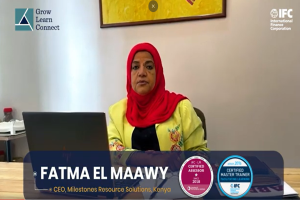Assessing performance needs,
Emerging markets,
Fragile and conflict-affected countries,
Gender,
Low-literacy groups,
What Is Different in Emerging Markets?
September 16, 2021
Any successful training program begins with a thorough needs assessment to determine the right solution. When working in a developed country, we often take for granted certain minimum standards. For instance, we assume that the classroom will have electricity and that, in most cases, our audience knows how to read and write at least to a high school level. Working in emerging markets sometimes is another matter entirely. We must constantly check our basic assumptions. After many years of working in emerging markets, here are five key assumptions we have learned always to check during needs assessments:
- Basic Utilities: Do the training facilities and the villages where participants live have reliable electricity, lights, water, and internet? If you are thinking of a strategy that uses distance learning or you want learners to use automated tools after they leave the class, they must be properly equipped to do so. This seems obvious but is not always the case. At one client in India, the villages where the training would occur only had six hours of electricity per day, and it was never the same six hours.
- Education levels: In many emerging markets, the mandatory requirements for school attendance are lower than elsewhere in the world. Oftentimes, participants come with only two to eight years of schooling. Knowing the levels in advance can help you write at the appropriate reading level and create appropriate activities.
- Access to technology: The obvious question is whether learners know how to use computers and smartphones. The less obvious issue is whether they are familiar with amenities that we think are common, such as air conditioning and whiteboards. At one client, participants were distracted for the first half of the session because they had never seen chairs with wheels on them before. They spent the first two hours rolling back and forth. Had we realized this, we could have incorporated that into the ice-breaker to get them over their amazement earlier.
- Religious requirements: In the US, we are used to the separation of church and state, and even church and business. This is not necessarily the case in emerging markets. Religious requirements can impact whether men and women can be in the same room together, how the two genders can interact during training, who can train whom, and whether prayer time or blessings before meals are needed during the sessions.
- Transportation requirements: In rural areas of emerging markets, learners might not have access to private or public transportation. Often participants walk to the training facility. Special thought needs to go into where the training will occur. If it is in a village, is there a location that can accommodate the training? If it is at a central location, will the organization arrange transportation for participants? If not, do class times need adjusting so participants do not have to walk in the dark?
Photo by Ron Hansen on Unsplash





